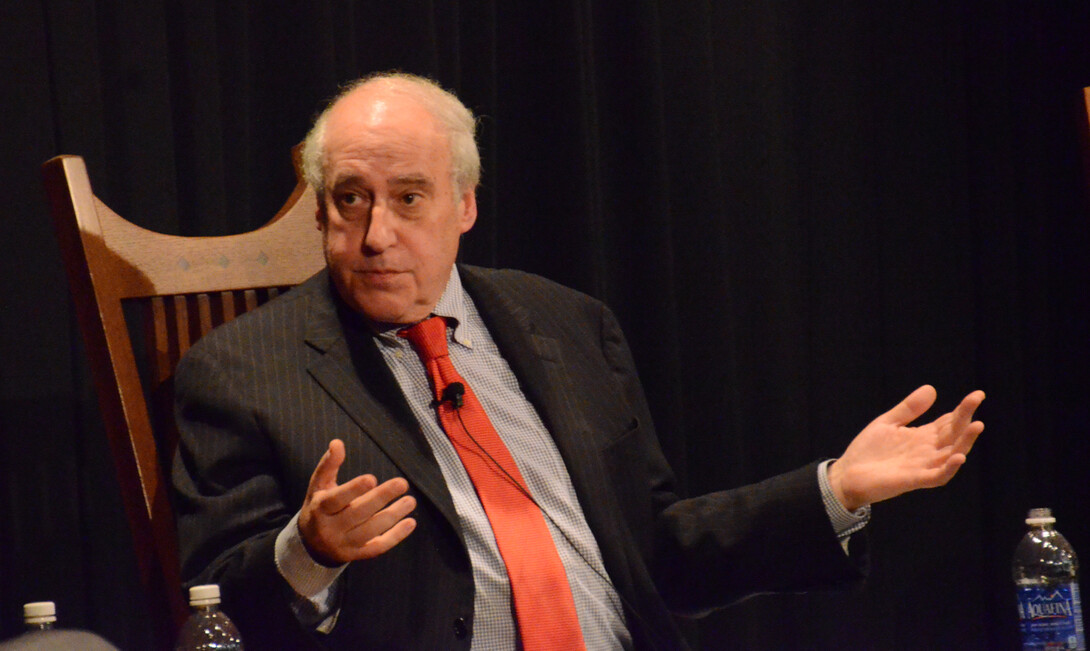
Public investment in agricultural research in the United States is lagging behind other nations, but land-grant university scientists still have the intellectual heft to make the country a leader in the challenge of feeding a growing global population, a former secretary of agriculture said Jan. 14.
Dan Glickman, who served in President Clinton’s cabinet, was part of a Heuermann Lectures panel discussing the topic “Regaining the U.S. Lead in Agricultural and Natural Resources Research and Education.”
In 1980, the U.S. was the world’s leader in public funding of agriculture, but beginning in about 2000, China began dramatically increasing its investment and has surpassed the U.S., said another panelist, Catherine Woteki, U.S. Department of Agriculture undersecretary for research, education and economics. Brazil and India also have increased such spending at a time when U.S. spending turned stagnant and even decreased.
“This is not an arms race,” Glickman said. “We’re glad other countries are spending” on agricultural research and education. But the U.S. must stake a place in the effort to feed a population expected to increase from 7 billion to 9 billion by mid-century.
“We have the best scientists. We don’t have to be doing all this work, but we have to be a leader,” he added.
Woteki shared a bit of good news: The farm bill still bogged down in Congress appears likely to reverse the last few years’ decline in ag research spending.
Glickman noted that the lengthy farm-bill debate, though, has done nothing to illuminate the true challenges ahead. Dominated by discussion of farm-program payments and the food-stamp program, the media coverage leaves people “questioning whether agriculture has its act together.”
“We hear very little about the future of agriculture, about the ability to feed the world in a sustainable way, very little about these huge challenges,” Glickman said of the political debate.
“You’ll probably never get great leadership out of the Congress on the issue of agricultural research,” said Glickman, a congressman from Kansas for 18 years. “It comes from universities, the private sector.”
Within those universities and even among some policy makers, though, this may be a pivotal “moment in history with respect to U.S. leadership and policy” on agriculture, said another panelist, Phil Pardey, professor in the University of Minnesota’s Department of Applied Economics.
Although politicians tend to look only three to five years ahead, many in the ag sector understand the importance of “building new systems in this moment that will outlive them,” Pardey said.
A key attempt to build those new systems recently outlined some recommendations. Among the proposals from the President’s Council of Advisors on Science and Technology is a plan for six large, multidisciplinary “innovation institutes” that would bring together public-private partnerships to focus on emerging challenges to agriculture.
Woteki was in Omaha on Jan. 14 for one in a series of listening sessions to get ideas for the institutes, which the presidential panel recommends funding with $25 million in federal dollars per institute per year.
“We’re early in our thinking,” Woteki said, but the concept has potential to reframe investments and priorities to put the U.S. back in a leadership role.
“We need a grand strategy,” Glickman said. “The United States must be the leader. We are uniquely positioned to lead a global call for action, but we’ve got to put our money where our mouth is.”
Heuermann Lectures in IANR are made possible through a gift from B. Keith and Norma Heuermann of Phillips, long-time university supporters with a strong commitment to Nebraska’s production agriculture, natural resources, rural areas and people.
The lectures focus on providing and sustaining enough food, natural resources and renewable energy for the world’s people, and on securing the sustainability of rural communities where the vital work of producing food and renewable energy occurs. Lectures stream live at http://heuermannlectures.unl.edu and are archived at that site soon after the lecture. Heuermann Lectures are also broadcast on NET2 World at a date following the lecture.







